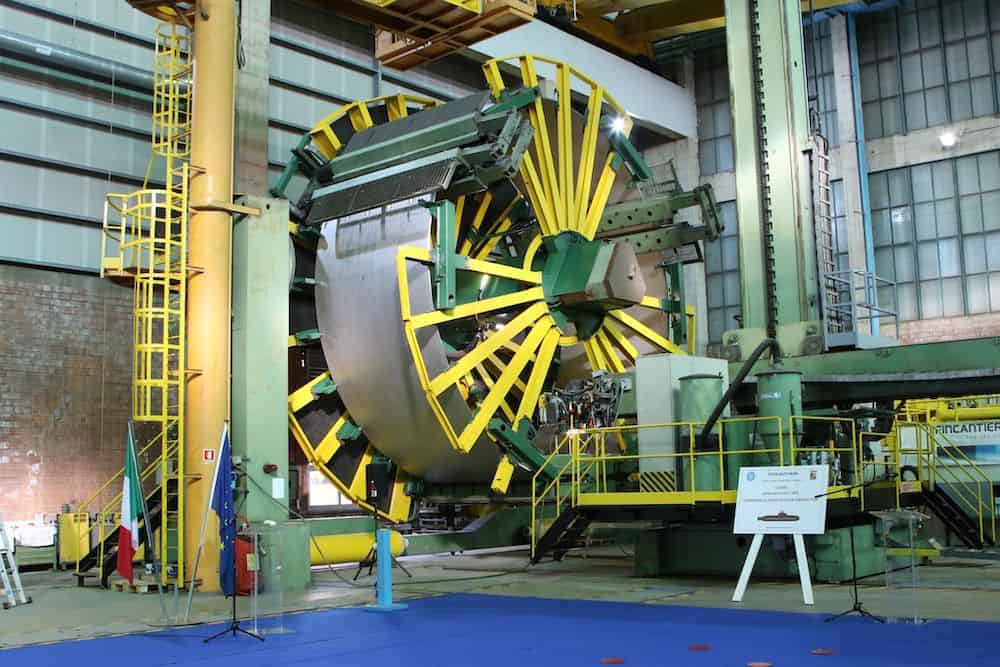
Fincantieri has started production activities for the first of two new-generation submarines, as part of the U212NFS (Near Future Submarine) acquisition program of the Italian Navy. The work is being carried out at the Muggiano (La Spezia) shipyard in Italy.
The program, which also envisages relevant in-service support, an option for two additional units, as well as the creation of a Training Center, is led by OCCAR (Organisation Conjointe de Cooperation en matiere d’Armement, the international organization for joint armament cooperation), in line with the most innovative management procedures, through life management and risk management.
The project is an evolution of the U212A program carried out in cooperation with the German thyssenkrupp Marine Systems, which resulted in the production of 4 submarines for Italy – Todaro, Scirè, Venuti and Romei, delivered by Fincantieri between 2006 and 2017 – and 6 for Germany.
The U212NFS program, which envisages the first two deliveries in 2027 and 2029, responds to the need to secure adequate underwater spatial surveillance and control capacity, considering the future complex scenarios of underwater military operations and that the operational lifetime of the 4 Sauro class submarines currently in service is coming to an end.
It also aims at upholding and further developing Fincantieri’s acquired strategic and innovative industrial know-how, as well as consolidating the technological lead attained by the company and its supply chain, major industries, and small and medium-sized enterprises of the sector, enhancing the presence on board of technologically advanced component parts developed by Italian industries.
The submarines carry out many different tasks for the benefit of the community on a daily basis, preserving national interests and collective defense within the framework of the most important alliances in which Italy participates, NATO and the EU. They range from purely military missions to operations pertaining to freedom of navigation, anti-piracy, keeping the energy supply routes safe (due to the presence of seabed resources or underwater infrastructure), observance of international law, fighting terrorism, defending external borders, and safeguarding maritime infrastructure, including essential off-shore and underwater infrastructure, not least preserving marine ecosystems.












